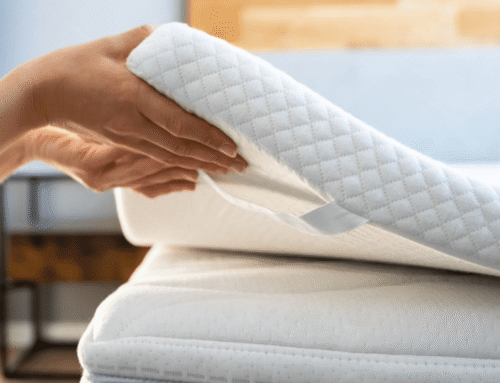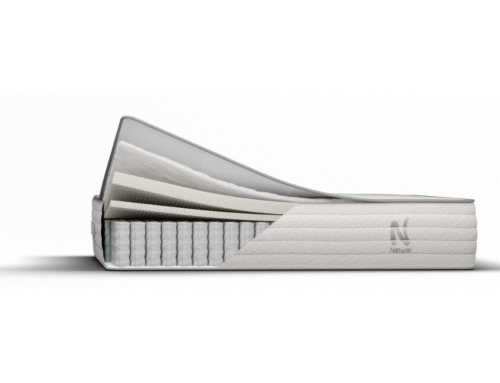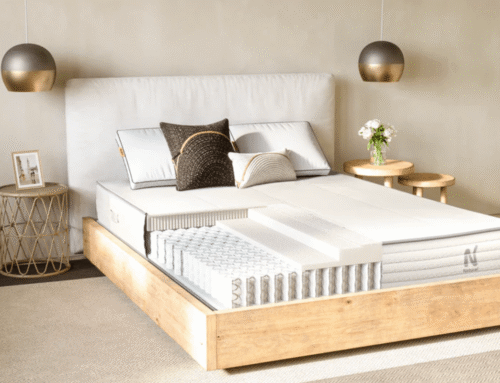When you snuggle into a soft mattress, you expect comfort and a good night’s sleep. But what happens when that same cozy bed leaves you waking up with a sore back? Let’s dive into why a soft mattress can hurt your back and what you can do about it.
A soft mattress can cause your spine to sink too deeply, leading to poor alignment. When your spine isn’t supported properly, it can strain muscles and joints, making you feel stiff and achy. If you’ve ever wondered why a soft mattress hurt your back, you’re not alone. This post will help you understand why soft mattresses hurt your back and how to make your sleep more comfortable.
Key Takeaways
- Soft mattresses can cause back problems if they let hips and shoulders sink too deeply, disrupting the spine’s alignment and leading to pain.
- Watch for clear warning signs such as persistent lower‑back soreness upon waking, stiffness, or relief after standing. These often indicate the mattress is too soft.
- Consider individual factors because body weight, sleep position, and issues like sciatica determine whether a soft mattress helps or harms.
- Medium‑firm usually works best since it provides comfort while keeping the spine properly supported, avoiding extremes of plush or rigid.
- Simple fixes help. Add a supportive mattress topper, adjust posture (for example, place a pillow under the knees when lying on your back), or switch to a medium‑firm mattress.

Poor Spinal Alignment
When you lie on a soft mattress, you might wonder what a soft mattress is supposed to do. Ideally, it should mold to your body while keeping your spine supported. But too often, your hips and shoulders sink in too much, causing your spine to curve unnaturally. Instead of holding your spine in a neutral position, it might arch or sag, leading to pain. That’s why it’s important to know how to fix a too soft mattress, and sometimes a simple solution like adding a firm mattress topper can make a world of difference.
Keeping your spine aligned is crucial for healthy sleep. Misalignment can cause tension in the muscles around your spine. Over time, this tension can lead to chronic pain and stiffness. If you need to sleep on a soft mattress with a bad back comfortably, consider adjusting your pillow height or trying different sleeping positions. The goal is to sleep on a soft mattress comfortably, ensuring your spine stays aligned and supported.
Lack of Support for Heavy Areas
When you lie on a soft mattress, your body’s different weight zones, like your hips and shoulders. need proper support. Sometimes a soft mattress just doesn’t cut it. It might not have enough support to handle these heavier areas effectively. If you’re trying to figure out if you need a soft or firm mattress, think about how your lower back feels in the morning. When these heavy parts sink too deeply, your lower back can arch awkwardly, leaving you with a sore back.
This uneven support can make it tough to get restful sleep. If you often wonder why your back hurts after sleeping, it’s often because of this imbalance in support. To fix it, you might want to make a soft mattress firmer with a mattress topper or by placing a firm board underneath. A mattress that provides proper support to heavy areas can help keep your spine aligned, making your sleep more comfortable and pain-free.
Pressure Points and Sagging
When you sleep on a mattress that’s too soft, you might find yourself sinking into the bed more than you’d like. This can create uncomfortable pressure points—spots where your hips or shoulders press down too far into the mattress. Those pressure points can cause pain and soreness that lingers long after you wake up.
It’s not just the pressure points that are the problem, though. Over time, a soft mattress can start to sag, especially in the middle where you usually lie. Sagging makes the bed even less supportive, which means your spine might not get the support it needs to stay aligned. That extra pressure on your back can lead to aches and pains that make getting a good night’s sleep nearly impossible.
If you notice that your mattress has started to sink or sag, especially in the middle, it’s a clear sign that it might be time for a replacement.
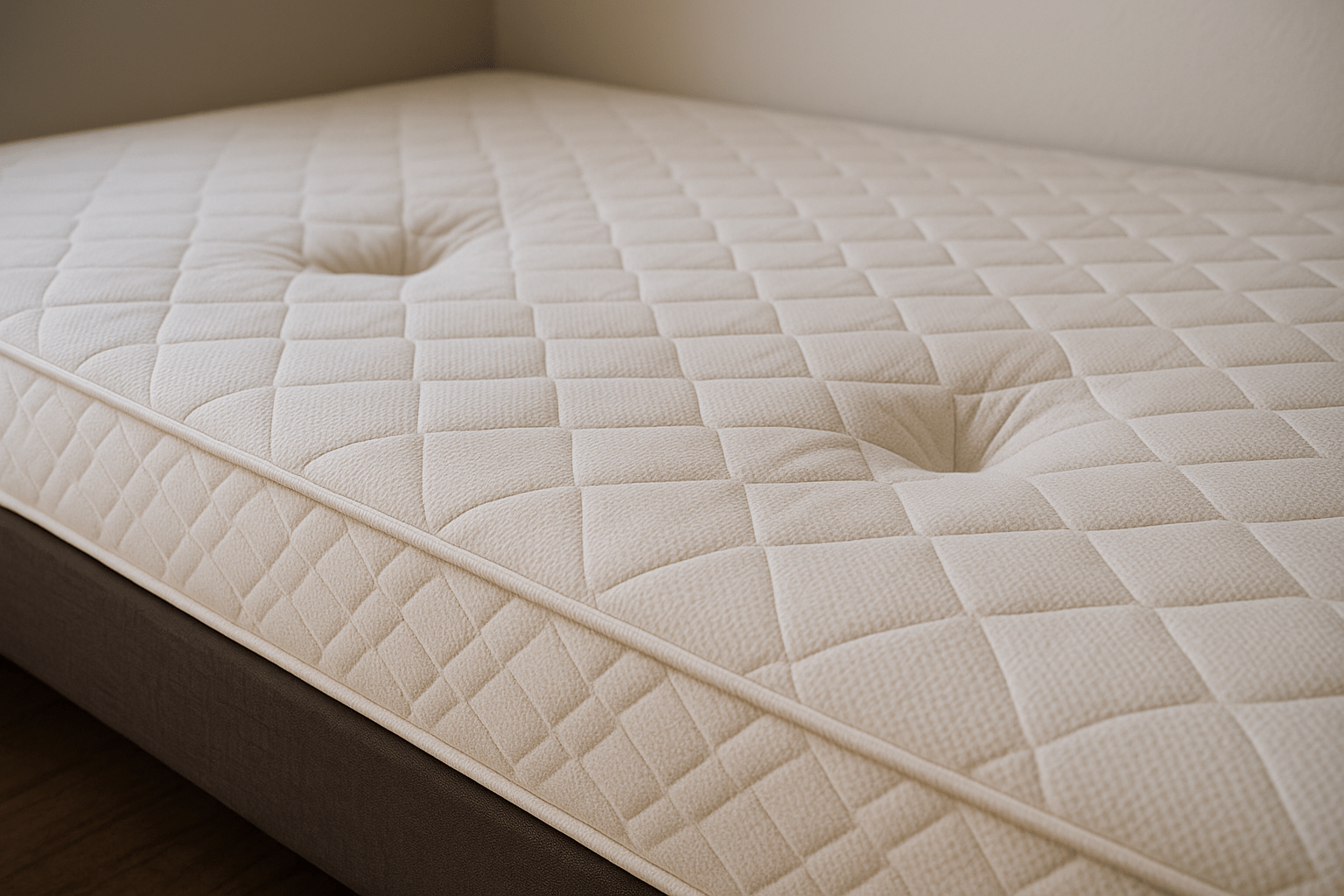
Why Does Soft Mattress Hurt Back?
You might think a soft mattress is the ultimate in comfort, but it can sometimes cause problems for your back. When a mattress is too soft, it doesn’t give your spine the support it needs to stay aligned. Without that crucial support, your back muscles have to work overtime just to keep you stable while you sleep. That extra effort can leave you waking up stiff and sore.
Many people wonder which is better for back pain: a soft or firm mattress. The truth is, it depends on your body type and sleeping position. A mattress that keeps your spine in a neutral position is best. When your spine isn’t aligned, it puts pressure on the muscles and joints that are supposed to help you rest. So if you’re asking yourself which is better for lower back pain, the answer often comes down to balance: enough support to prevent sagging, but not so firm that it causes discomfort.
Why Does My Back Hurt When I Sleep on a Soft Mattress?
Have you ever woken up wondering why your back hurts when you sleep on a soft mattress? You’re not alone. It’s a common problem for people who love the cozy feel of a soft bed. When a mattress is too soft, it can let your body sink in more than it should. That sinking can cause your lower back to sag, throwing your spine out of its natural alignment.
When your spine curves too much, it can put pressure on your lower back, leading to aches and stiffness in the morning. If you find yourself waking up sore, it might be a sign that your mattress isn’t giving your back the support it needs. One solution is to try a firmer mattress or add a mattress topper to help keep your spine in a healthier position. That little bit of extra support can make a big difference in the quality of your sleep and the way you feel in the morning.

Why Is Soft Mattress Bad for Back?
Ever wondered why a soft mattress might be bad for your back? It often comes down to the lack of support. When you lie down, a too-soft mattress can make you feel like you’re sinking into a marshmallow. This might seem cozy at first, but it can leave your spine struggling to stay aligned. That’s why people sometimes wake up with back pain and discomfort.
Sure, a soft mattress is good for some sleepers, especially those who like that “cushiony” feel or who sleep on their side. But it’s important to remember that too much softness can cause your hips and shoulders to dip too far, putting stress on your lower back. Over time, this can lead to aches and stiffness.
A mattress that balances softness with enough support is the key to pain-free sleep. That way, you can enjoy the comfort of a soft bed without sacrificing the support your spine needs.
Tips to Relieve Back Pain from a Soft Mattress
If your soft mattress is causing back pain, try these tips:
- Use a Mattress Topper: Adding a firmer mattress topper can give you extra support.
- Change Sleep Position: Try sleeping on your back with a pillow under your knees to keep your spine straight.
- Rotate Your Mattress: Flipping or rotating your mattress can help even out sagging.
- Check Your Pillow: Make sure your pillow supports your neck and keeps your spine aligned.
A few small adjustments can make a big difference in your sleep quality and help relieve back pain.
When to Replace a Soft Mattress
If your mattress has deep sags, lumps, or just feels uncomfortable no matter how much you try to adjust, it might be time to replace it. Mattresses usually last around 7 to 10 years, depending on how often you use them and how well you take care of them. If yours is older or you’ve had it for a while, it may have lost the ability to provide the support you need.
A worn-out mattress can’t properly support your spine, which can lead to back pain and restless sleep. It’s normal to ask yourself which mattress is good for your health when you’re searching for a replacement. The key is to find a mattress that balances comfort with enough firmness to support your spine in its natural alignment.
Investing in a good-quality mattress that suits your body type and sleep preferences can make a big difference in how you feel each morning, helping you sleep better and wake up refreshed.
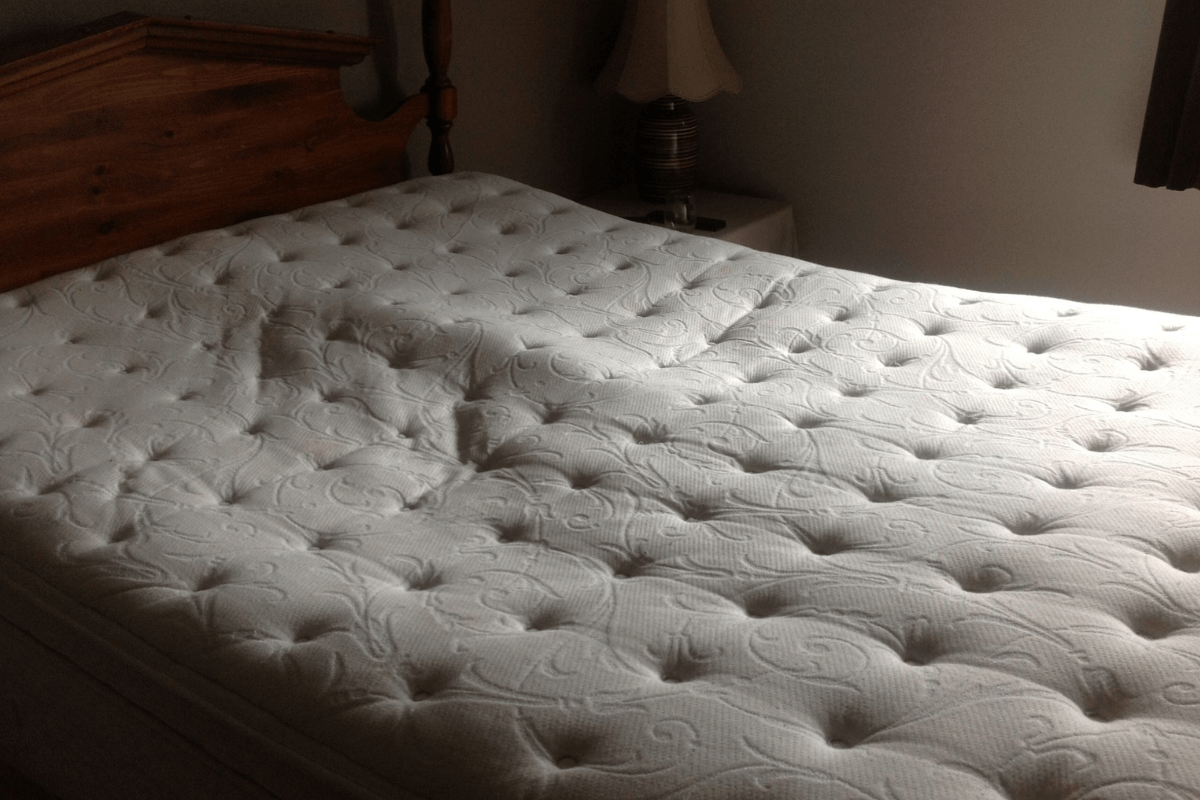
Choosing the Right Mattress for Your Back
When you’re shopping for a mattress, it’s important to think about more than just how soft it feels. Look for one that balances softness with support. Many people find that a medium-firm mattress is just right—it’s soft enough to cushion your body, yet firm enough to keep your spine in a healthy, aligned position.
But it’s not one-size-fits-all. If you’re on the heavier side, you might need a firmer mattress to prevent sinking and give your spine the support it needs. If you’re lighter, a soft or medium mattress might feel more comfortable and still provide adequate support.
A common question is whether to choose a firm or soft mattress for your back. The key is to find a mattress that keeps your spine aligned and allows you to sleep comfortably through the night. Take the time to test different options and trust what feels right for your body.
Final Thoughts
Understanding why a soft mattress might hurt your back is the first step to getting the good night’s sleep you deserve. A mattress that’s too soft can cause your spine to fall out of alignment, leading to muscle pain and tension that just won’t go away. It can also create pressure points where your hips or shoulders sink too deeply into the mattress, leaving you tossing and turning through the night.
But don’t worry, there are ways to fix this. By choosing a mattress that offers the right balance of comfort and support, you can help your spine stay aligned and reduce those pesky pressure points. Adding a mattress topper or adjusting your pillow height can also make a world of difference. The key is to listen to your body. If you’re waking up sore, it might be time to rethink your sleep setup. With a little attention to detail, you can finally wake up refreshed and pain-free.




